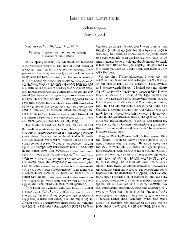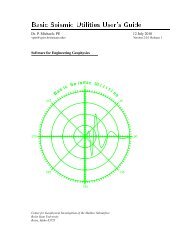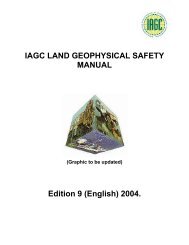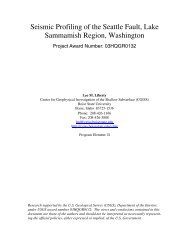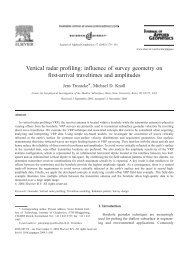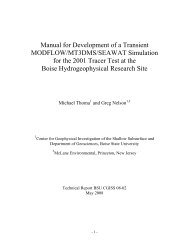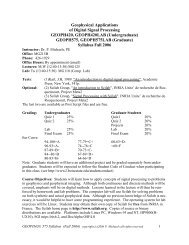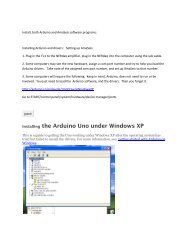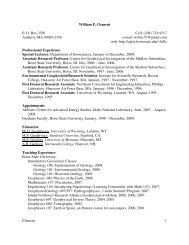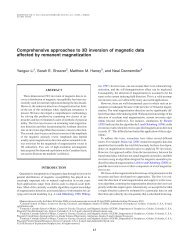Chapter 9 - Instructional Media: Chalkboards to Video - CGISS
Chapter 9 - Instructional Media: Chalkboards to Video - CGISS
Chapter 9 - Instructional Media: Chalkboards to Video - CGISS
You also want an ePaper? Increase the reach of your titles
YUMPU automatically turns print PDFs into web optimized ePapers that Google loves.
• Term papers are valuable <strong>to</strong> students because they provide<br />
them with an opportunity <strong>to</strong> be experts in small but relevant<br />
areas of the field. They should be limited <strong>to</strong> one per term. Term<br />
papers are long for most students and are a significant part of<br />
the work for the term. A term paper should be introduced early<br />
in a course and collected near the course’s end. It should<br />
contain some requirement for research, and a strong indication<br />
that the student has mastered the course material as it was<br />
presented over the term of the course. A term paper is a type<br />
of project, and the characteristics and recommendations for<br />
projects apply (see next bullet).<br />
Suggestions for making term papers more effective<br />
measures of learning:<br />
• Ask students <strong>to</strong> write <strong>to</strong> readers other than you, such as<br />
peers, experts in the field, or <strong>to</strong> specific journals.<br />
• Clarify what the final term paper should do: classify,<br />
explain, summarize, demonstrate, generate, or design.<br />
• Let students know your expectations concerning:<br />
o Academic discourse conventions<br />
o Level of formality<br />
o Structure: introductions, bodies, conclusions, and<br />
internal organization options<br />
o Formatting instructions: length, margins, typing,<br />
cover page, page numbering, and documentation<br />
style. Give samples, if possible.<br />
o<br />
Charts, graphics<br />
• Assist in the writing process:<br />
o<br />
o<br />
o<br />
o<br />
o<br />
Students bring in drafts and respond <strong>to</strong> each other’s<br />
work.<br />
One-on-one conferences<br />
Pho<strong>to</strong>copy a past student’s draft and critique it as a<br />
class.<br />
Encourage students <strong>to</strong> take their drafts <strong>to</strong> the<br />
Writing Center.<br />
Schedule the workload.<br />
• When grading term papers:<br />
o<br />
o<br />
Avoid being overly directive, commenting on every<br />
grammatical error or global problem, and avoid<br />
making vague or generic comments.<br />
Respond <strong>to</strong> strengths and weaknesses.<br />
Section: Student Assessment 180 <strong>Chapter</strong> 12: Testing Issues



